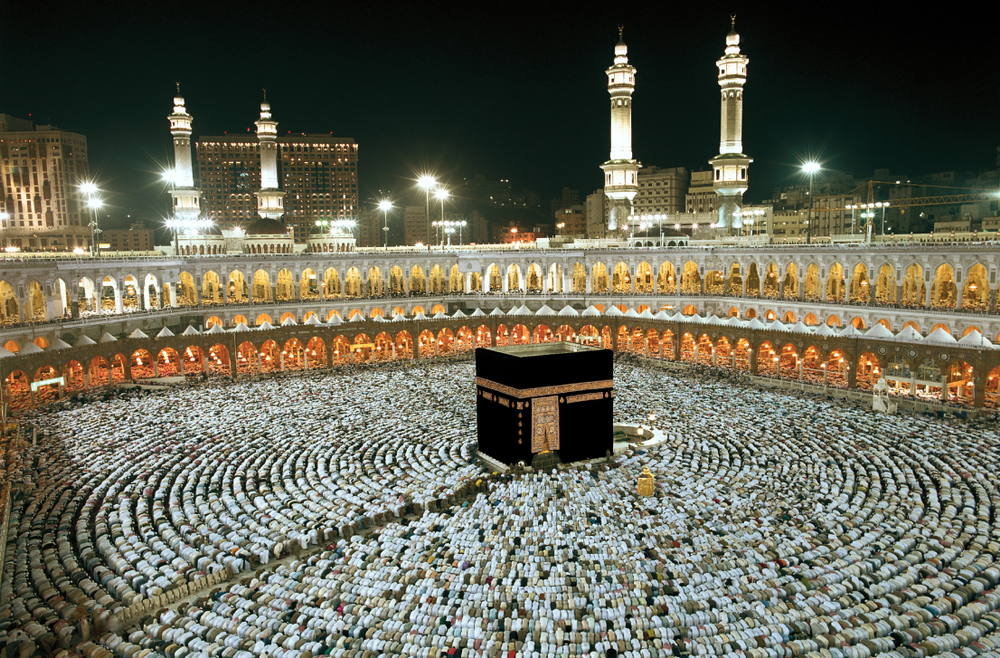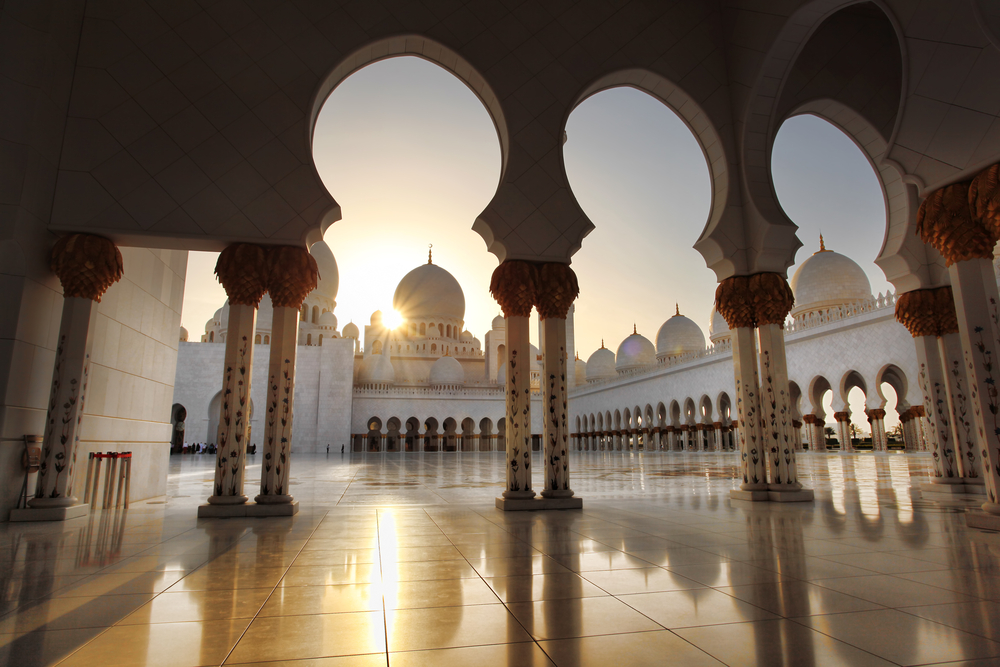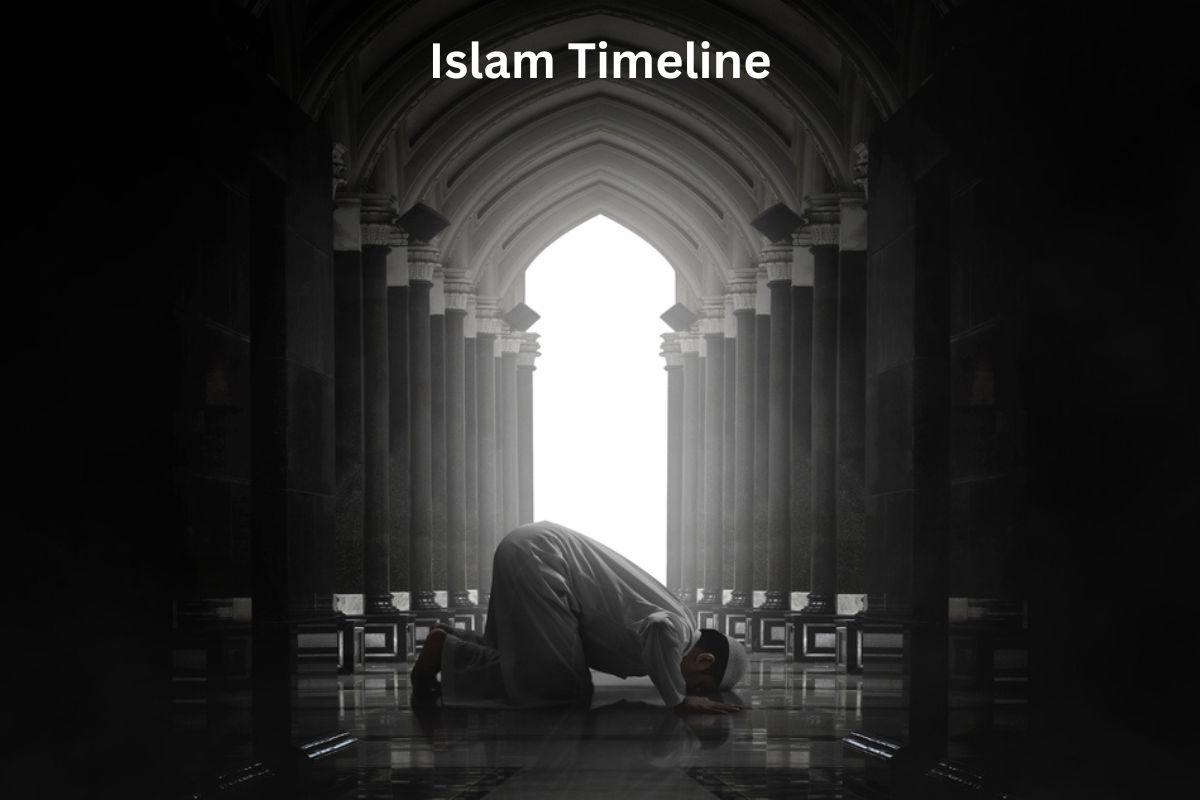Islamic history spans over 1,400 years and encompasses a rich tapestry of events, cultures, and civilizations.
From the birth of Prophet Muhammad and the revelation of Islam in 7th-century Arabia to the establishment of modern Islamic states and ongoing global challenges, the history of Islam is marked by significant milestones, cultural achievements, and complex dynamics.
This brief overview provides insights into key events and developments that have shaped the diverse and dynamic world of Islam.
| Year | Event |
|---|---|
| 570 CE | Birth of Prophet Muhammad in Mecca, Arabia. |
| 610 CE | First revelation to Prophet Muhammad. |
| 622 CE | The Hijra (Emigration) to Medina. |
| 630 CE | Conquest of Mecca. |
| 632 CE | Death of Prophet Muhammad. |
| 632-661 CE | The Rashidun Caliphs. |
| 656 CE | The First Fitna. |
| 661 CE | The Umayyad Caliphate established. |
| 680 CE | Battle of Karbala. |
| 711 CE | Umayyad expansion into Spain. |
| 750 CE | The Abbasid Caliphate established in Baghdad. |
| 800-1100 CE | The Islamic Golden Age. |
| 1096-1291 CE | The Crusades. |
| 1258 CE | Mongol sacking of Baghdad. |
| 1517 CE | Ottoman Empire’s conquest of Egypt. |
| 1683 CE | Siege of Vienna; decline of Ottoman Empire. |
| 19th-20th c. | Colonialism and Modernization. |
| 20th c. | Islamic Revivalism. |
| 20th-21st c. | Modern Islamic States established. |
| Ongoing | Contemporary Islamic Issues. |
Timeline of Islamic History
570 CE – Birth of Prophet Muhammad in Mecca, Arabia
This event marks the beginning of the life of Prophet Muhammad, the founder of Islam. Born into the influential Quraysh tribe in the city of Mecca, Muhammad grew up as an orphan. He later became known for his honesty and integrity and worked as a merchant.

610 CE – First revelation to Prophet Muhammad
At the age of 40, Muhammad began receiving revelations from Allah (God) through the Angel Gabriel. The first revelation took place in a cave on Mount Hira, near Mecca.
These revelations were eventually compiled into the Quran, the holy book of Islam, and marked the start of Muhammad’s prophethood.
622 CE – The Hijra (Emigration) to Medina
Due to persecution and opposition from the leaders of Mecca, Muhammad and his followers, known as the early Muslims, emigrated to the city of Yathrib, which later became known as Medina.
This event, known as the Hijra, is considered one of the most significant turning points in Islamic history as it marks the establishment of the first Islamic community and calendar.
630 CE – Conquest of Mecca
After years of conflict and negotiations, Muhammad and his followers returned to Mecca and peacefully conquered the city.
This event, known as the Conquest of Mecca, led to the eventual spread of Islam throughout the Arabian Peninsula.

632 CE – Death of Prophet Muhammad
In 632 CE, Prophet Muhammad passed away in Medina at the age of 63. His death marked the end of his prophethood, and he left behind a rapidly growing Muslim community.
His teachings, as recorded in the Quran and Hadith (sayings and actions attributed to him), continue to guide Muslims in matters of faith, morality, and daily life.
632-661 CE – The Rashidun Caliphs
After the death of Prophet Muhammad, the Islamic community faced the challenge of leadership succession. The first four Caliphs, often referred to as the “Rightly Guided Caliphs,” played pivotal roles in the early expansion and governance of the Muslim community.
Abu Bakr (632-634 CE) was the first Caliph and successfully united the Arabian Peninsula through the Ridda Wars and launched military campaigns beyond Arabia.
Umar ibn al-Khattab (634-644 CE) oversaw the rapid expansion of the Islamic Empire, conquering large parts of the Byzantine and Sassanian Empires.
Uthman ibn Affan (644-656 CE) is known for compiling the Quran into a standardized written form. However, his rule faced internal strife, leading to his assassination.
Ali ibn Abi Talib (656-661 CE), the cousin and son-in-law of Muhammad, became the fourth Caliph but faced internal conflicts, including the First Fitna, a civil war among Muslims.
656 CE – The First Fitna
The First Fitna was a major internal conflict within the early Muslim community. It primarily revolved around the leadership dispute between Ali and Muawiya I, the governor of Syria. The conflict culminated in the Battle of Siffin in 657 CE, which ended inconclusively.
The First Fitna had significant religious and political implications, leading to the emergence of the Sunni and Shiite branches within Islam. Sunnis supported the legitimacy of the first three Caliphs, while Shiites believed in Ali’s rightful leadership.
661 CE – The Umayyad Caliphate established
After the assassination of Ali, Muawiya I became the first Umayyad Caliph, establishing the Umayyad dynasty in Damascus, Syria. This marked a shift in the center of Islamic power from Medina to Damascus.
The Umayyads expanded the Islamic Empire significantly, reaching as far west as Spain and establishing Arabic as the administrative language of the empire.

680 CE – Battle of Karbala
The Battle of Karbala is a pivotal event in Shiite Islam. It took place when Husayn ibn Ali, the grandson of Prophet Muhammad and the son of Ali, confronted the Umayyad Caliph Yazid I.
Husayn and his small group of followers, including his family members, were martyred in the battle. This event is commemorated annually during the religious observance of Ashura and holds great significance in Shiite Islam.
711 CE – Umayyad expansion
Under the Umayyads, the Islamic Empire expanded into Spain (known as Al-Andalus) after the successful conquest of the Iberian Peninsula. Muslim rule in Spain lasted for several centuries and contributed significantly to the fields of science, culture, and architecture.
750 CE – The Abbasid Caliphate
The Abbasid Caliphate was established with its capital in Baghdad, Iraq, after the overthrow of the Umayyad Caliphate. This marked a new era in Islamic history.
The Abbasids promoted a more inclusive approach to leadership, seeking support from various Muslim communities and non-Arab Muslims. They also patronized science, philosophy, and culture during the Islamic Golden Age.
800-1100 CE – The Islamic Golden Age
The Islamic Golden Age was a period of remarkable intellectual and cultural achievements. During this time, Muslim scholars made significant contributions in various fields, including mathematics, astronomy, medicine, philosophy, and literature.
Figures like Al-Kindi, Al-Razi, Al-Farabi, and Ibn Sina (Avicenna) made groundbreaking advances in science and medicine. This period also witnessed the translation of Greek, Persian, and Indian texts into Arabic, preserving and building upon the knowledge of earlier civilizations.
1096-1291 CE – The Crusades
The Crusades were a series of religious and military campaigns launched by European Christians to capture and control the Holy Land, including Jerusalem, which was under Muslim rule.
The Crusades led to significant interactions between Christians and Muslims and resulted in the establishment of Crusader states in the Levant. They also had a lasting impact on relations between the two civilizations.

1258 CE – Mongol sacking of Baghdad
The Mongol Empire, under the leadership of Hulagu Khan, besieged and sacked Baghdad, the capital of the Abbasid Caliphate. This event led to the destruction of the city, including its libraries and cultural treasures.
The sack of Baghdad is often considered a turning point in Islamic history, symbolizing the decline of the Abbasid Caliphate and the fragmentation of the Muslim world.
1517 CE – Ottoman Empire
In 1517, the Ottoman Empire, under the leadership of Sultan Selim I, conquered Egypt and the holy cities of Mecca and Medina, effectively bringing the Abbasid Caliphate to an end.
The Ottomans established themselves as the dominant Islamic power, with their capital in Istanbul (formerly Constantinople). They ruled over a vast and diverse empire that spanned Europe, Asia, and Africa for several centuries.
1683 CE – Siege of Vienna; decline of Ottoman Empire
The Siege of Vienna in 1683 marked the high point of the Ottoman Empire’s expansion into Europe. However, the siege was ultimately unsuccessful, and it signaled the beginning of the decline of the Ottoman Empire.
The defeat at Vienna marked the start of a series of losses and territorial retreats for the Ottomans in Europe. It also had far-reaching consequences for the balance of power in Europe and the Middle East.
19th-20th centuries – Colonialism and Modernization
During the 19th and early 20th centuries, many parts of the Islamic world came under European colonial rule. European powers, including Britain, France, and others, established control over vast territories in the Middle East, North Africa, and South Asia.
Colonialism had a profound impact on Islamic societies, including political, economic, and cultural changes. It also led to nationalist movements seeking independence from colonial rule.
20th century – Islamic Revivalism
The 20th century witnessed a resurgence of interest in Islamic identity and values, often referred to as Islamic revivalism or the Islamic Awakening. This revival took various forms, from religious reforms to political movements.
Figures like Hassan al-Banna (founder of the Muslim Brotherhood) and Sayyid Qutb advocated for a return to Islamic principles and values as a response to the challenges posed by colonialism and modernization.
20th-21st centuries – Modern Islamic States established
Throughout the 20th and 21st centuries, numerous Islamic nations emerged as independent states. Some examples include Pakistan in 1947, Indonesia in 1949, and many countries in the Middle East and Africa.
These newly established states faced various challenges, including nation-building, governance, and the balance between Islamic values and modernization.
Ongoing: Contemporary Islamic Issues
The 21st century has seen a range of complex and evolving issues within the Islamic world. These include political developments such as the Arab Spring, conflicts in the Middle East (e.g., Syrian Civil War and Yemeni Civil War), and the rise of extremist groups like ISIS.
Contemporary Islamic issues also encompass social and cultural changes, efforts at economic development, and ongoing debates about the role of Islam in the modern world. Additionally, issues related to Muslim minorities in non-Muslim-majority countries are of global significance.
